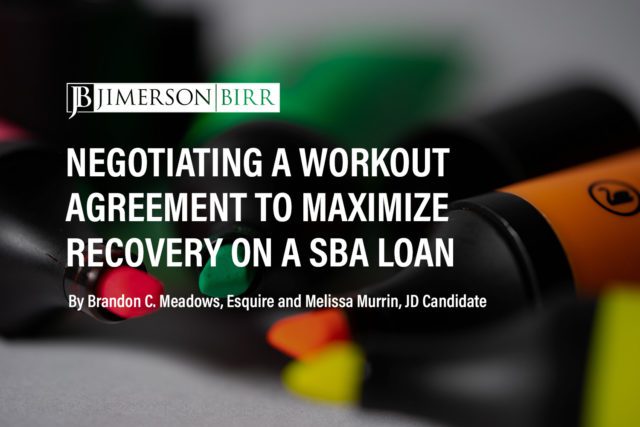What does workout, refinancing, and restructuring opportunities outside of bankruptcy encompass?
Workout, refinancing, and restructuring opportunities are common methods through which a debtor and creditor can resolve financial disputes without the need for a formal bankruptcy proceeding. For bankruptcy in Florida, workout agreements allow for negotiated settlements, where creditors may agree to reduce or restructure the debtor’s obligations to avoid bankruptcy. Refinancing involves securing new loans to pay off existing debts, often with better terms or lower interest rates. Restructuring refers to the modification of a debtor’s financial obligations, often through the rescheduling of payments, reduction of interest rates, or conversion of debt to equity.
For example, a debtor operating a small business in Florida may face cash flow difficulties, putting them at risk of defaulting on loans from multiple creditors. Through workout, refinancing, and restructuring opportunities, the debtor could negotiate with creditors to restructure their outstanding loans, secure new financing with lower interest rates, and ultimately avoid bankruptcy while satisfying their obligations to creditors.
Need a bankruptcy law advocate? Schedule your consultation today with a top bankruptcy and restructuring attorney.
Which Florida laws and regulations apply to workout, refinancing, and restructuring opportunities outside of bankruptcy?
In Florida, workout, refinancing, and restructuring opportunities outside of bankruptcy are primarily governed by the state’s contract law and the Uniform Commercial Code (UCC) as adopted by Florida. Specifically, Article 9, which deals with secured transactions, plays a significant role in guiding the creation and enforcement of workout agreements between debtors and creditors. Additionally, the Florida Consumer Collection Practices Act (FCCPA) offers protections for consumers in the context of debt collection, which can be relevant in workout negotiations.
Federal laws and regulations, such as the Truth in Lending Act (TILA) and the Fair Debt Collection Practices Act (FDCPA), also apply in Florida, providing guidance and consumer protections in workout, refinancing, and restructuring opportunities outside of bankruptcy. These federal laws ensure that creditors adhere to specific requirements in their dealings with debtors, promoting transparency and fairness in negotiations.
How do workout, refinancing, and restructuring opportunities outside of bankruptcy connect to the bankruptcy process?
Workout, refinancing, and restructuring opportunities outside of bankruptcy serve as alternative methods to resolve financial disputes between debtors and creditors without resorting to formal bankruptcy proceedings. These opportunities can be beneficial for both parties: creditors may recover more of the debt owed, and debtors can avoid the negative consequences of bankruptcy, such as damaged credit scores and loss of assets. Workout, refinancing, and restructuring can sometimes prevent bankruptcy altogether or create more favorable conditions if bankruptcy becomes inevitable. By negotiating a workout agreement, refinancing debts, or restructuring financial obligations, debtors may demonstrate good faith and commitment to resolving their financial issues. In turn, creditors may be more inclined to support the debtor’s efforts to reorganize their finances under a bankruptcy plan, such as a Chapter 11 or Chapter 13 filing.
When a set of facts is appropriate for bankruptcy services, there are many paths a claimant may take. We are value-based attorneys at Jimerson Birr, which means we look at each action with our clients from the point of view of costs and benefits while reducing liability. Then, based on our client’s objectives, we chart a path to seek appropriate remedies.
To determine whether your unique situation may necessitate litigation or another form of specialized bankruptcy advocacy, please contact our office to set up your initial consultation.
What legal risks are do debtors face during bankruptcy?
Consider the following forms of exposure:
- Automatic stay violations: Creditors may inadvertently violate the automatic stay imposed under the Bankruptcy Code, leading to potential sanctions.
- Loss of assets: Debtors may lose non-exempt assets in a Chapter 7 bankruptcy case.
- Preference actions: Bankruptcy trustees may claw back payments made to creditors within a certain time period before filing for bankruptcy.
- Fraudulent transfers: Debtors who engage in fraudulent transfers may face legal consequences, including the trustee’s ability to recover assets or deny a discharge.
Please contact our office to set up your initial consultation to see what forms of legal protection and advocacy may be available for your unique situation.
Frequently Asked Questions
- What are some alternative options to bankruptcy for debtors seeking workout, refinancing, or restructuring opportunities?
Debtors can consider out-of-court options, such as debt negotiation, loan modification, and debt consolidation, to address their financial challenges without resorting to bankruptcy.
- How does Florida law influence workout, refinancing, and restructuring opportunities for debtors?
Florida law offers specific protections and guidelines for debtors seeking workout, refinancing, or restructuring opportunities outside of bankruptcy, including fraudulent transfer laws and exemptions.
- Can a debtor who has already filed for bankruptcy still explore workout, refinancing, and restructuring opportunities?
Yes, a debtor who has filed for bankruptcy may still pursue out-of-court workout, refinancing, or restructuring options, with the bankruptcy court’s approval, such as during a Chapter 11 reorganization.
Have more questions about how bankruptcy services could positively impact your business operations and relationships?
Crucially, this overview of workout, refinancing, and restructuring opportunities outside of bankruptcy does not begin to cover all the laws implicated by this issue or the factors that may compel the application of such laws. Every case is unique, and the laws can produce different outcomes depending on the individual circumstances.
Jimerson Birr attorneys guide our clients to help make informed decisions while ensuring their rights are respected and protected. Our lawyers are highly trained and experienced in the nuances of the law, so they can accurately interpret statutes and case law and holistically prepare individuals or companies for their legal endeavors. Through this intense personal investment and advocacy, our lawyers will help resolve the issue’s complicated legal problems efficiently and effectively.
Having a Jimerson Birr attorney on your side means securing a team of seasoned, multi-dimensional, cross-functional legal professionals. Whether it is a transaction, an operational issue, a regulatory challenge, or a contested legal predicament that may require court intervention, we remain tireless advocates at every step. Being a value-added law firm means putting the client at the forefront of everything we do. We use our experience to help our clients navigate even the most complex problems and come out the other side triumphant.
If you want to understand your case, the merits of your claim or defense, potential monetary awards, or the amount of exposure you face, you should speak with a qualified Jimerson Birr lawyer. Our experienced team of attorneys is here to help. Call Jimerson Birr at (904) 389-0050 or use the contact form to schedule a consultation.

We live by our 7 Superior Service Commitments
- Conferring Client-Defined Value
- Efficient and Cost-Effective
- Accessibility
- Delivering an Experience While Delivering Results
- Meaningful and Enduring Partnership
- Exceptional Communication Based Upon Listening
- Accountability to Goals











